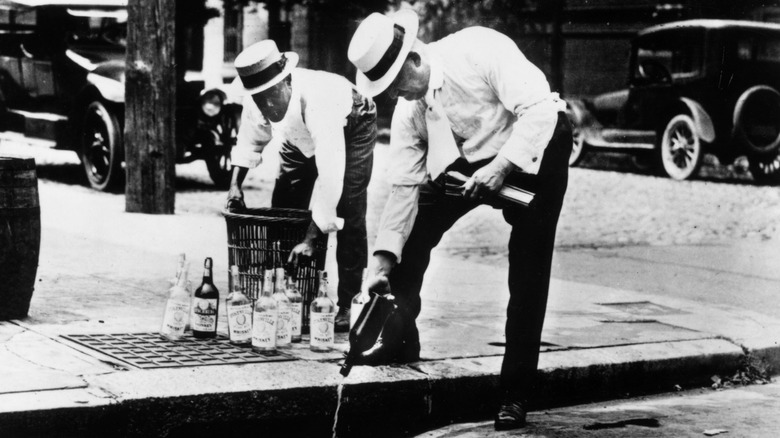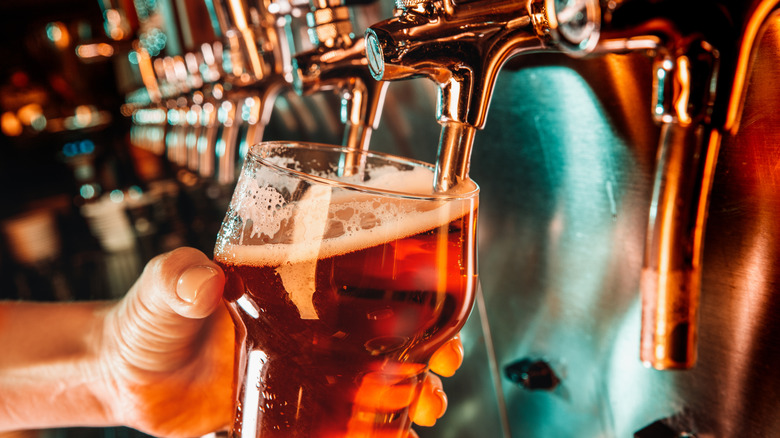These Were The Benefits Of Prohibition
President Herbert Hoover called Prohibition "the noble experiment." It was a nearly 14-year period (January 17, 1920-December 5, 1933) when the manufacture, sale, and transportation of alcohol was forbidden in the United States, and by almost every measure was a failure. Americans didn't stop drinking during Prohibition, much to the disappointment of the men and women who campaigned so tirelessly for the 18th Amendment. Indeed, words such as "scofflaw" and "speakeasy" entered the American lexicon during Prohibition, referring to one who openly flouts the law (by drinking) and a place where one can easily get illegal booze, respectively.
Similarly, Prohibition helped fuel the rise of organized crime. According to Khan Academy, though advocates hoped the ban on alcohol would stifle criminal activity, it actually had the opposite effect, particularly when it came to bootlegging, violence between rival gangs, and related criminal activity.
However, lost in the narrative about Prohibition's failure is the fact that, in some ways, it was a success, although not the success its advocates hoped for. Rates of alcohol consumption did go down during and after Prohibition. Similarly, though Prohibition failed to make every last American a teetotaler, it did shine a light on how alcohol abuse could be a destructive force in some families.
These were the benefits of Prohibition.
Alcohol consumption dropped somewhat during and after Prohibition
Groups that advocated for Prohibition, such as the Anti-Saloon League or the Women's Christian Temperance Union, hoped that the consumption of alcohol in the U.S. would drop to zero. That didn't happen, of course. But alcohol consumption did drop during Prohibition, according to History, by a not-insignificant percentage.
Specifically, according to a study by M.I.T. and Boston University, in the early years of Prohibition, alcohol consumption fell by as much as 70%. By the late 1920s, as the public grew tired of the "noble experiment," alcohol consumption rose again. However, following the passage of the 21st Amendment, which repealed Prohibition, alcohol consumption fell again, this time to by as much as 30% of pre-Prohibition levels, and remained there for decades after.
According to the National Institutes of Health, this was because anti-alcohol crusaders had, to an extent, made their point, not so much via legislation, but via education: "The lowered level of consumption during the quarter century following Repeal, together with the large minority of abstainers, suggests that Prohibition did socialize or maintain a significant portion of the population in temperate or abstemious habits," wrote Jack S. Blocker, PhD.
Even when Prohibition was repealed, some states retained temperance laws. Mississippi was the last, ending Prohibition there in 1966, according to another entry at History.

